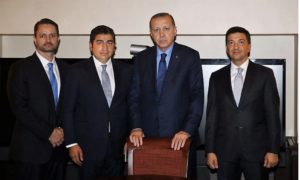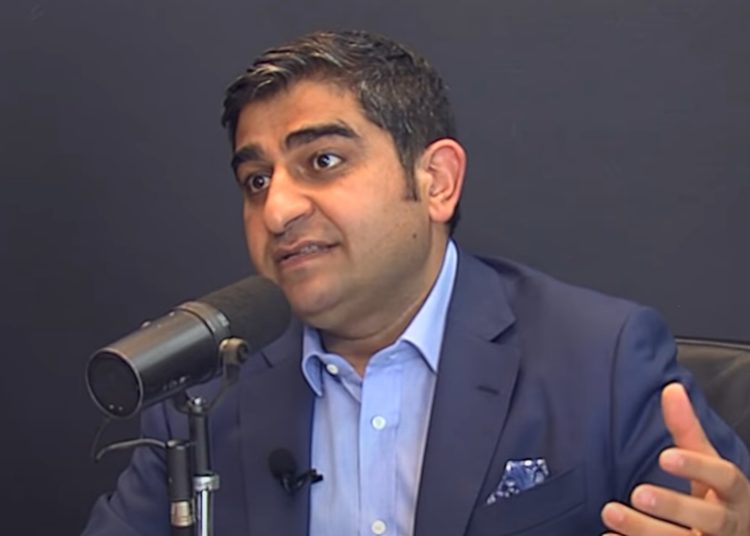Abdullah Bozkurt/Stockholm
The government of Turkish President Recep Tayyip Erdoğan manipulated the judicial system in an effort to save a con-man businessman who defrauded US taxpayers of more than $133 million and to protect Turkish political connections from the long arm of the US justice system.
The secret operation was officially confirmed by Turkish Interior Minister Süleyman Soylu on November 22, 2021, when he was peppered with questions from lawmakers about his connection to Sezgin Baran Korkmaz, a former Erdoğan associate who is wanted in the US on money laundering and wire fraud charges. Soylu’s revelations came during budget deliberations in the Parliamentary Planning and Budget Committee.
Soylu had a private meeting with Korkmaz before he was allowed to leave Turkey in highly unusual circumstances, and he never explained why he met with a wanted man in secret. Korkmaz was detained in Austria on June 19, 2021 at the request of the US and is currently awaiting the finalization of extradition requests filed by both Turkey and the US.
Describing the federal case against Korkmaz as an “international operation against Turkey,” Soylu told lawmakers at the hearing, “We made a decision with the involvement of all the institutions of the [Turkish] state from top to bottom … and we foiled the US [efforts] and exposed those who plotted against us.”
Part of the hearing transcript that reveals the Turkish interior minister’s admission of how Turkey tried to undermine the US federal case against the money launderer:
The admission confirmed the politically manipulated judicial proceedings launched against Korkmaz after mounting pressure from US authorities, who wanted him extradited to the US to stand trial on multiple charges including money laundering, wire fraud and obstruction.
Korkmaz was indicted by a federal grand jury in Salt Lake City, Utah, on April 28, 2021 in connection to a case against the Kingston brothers — Jacob Kingston and Isaiah Kingston -– who are accused of defrauding the US Treasury by filing false claims for over $1 billion in refundable renewable fuel tax credits for the production and sale of biodiesel by their company, Washakie Renewable Energy LLC, in Plymouth, Utah. Korkmaz and his partners, Levon Termendzhyan (Lev Dermen) and Ekim Alptekin, had allegedly facilitated the scheme.

The money was used by Korkmaz and his co-conspirators to buy assets in Turkey in close cooperation with the government of President Erdoğan. He also promised to provide a safe haven for the Kingston brothers, using his connections to high-ranking officials in Turkey.
The Erdoğan government initially balked at US requests to launch an investigation into Korkmaz and his co-conspirators, and not only protected him and his network but also facilitated a transfer of assets for him by unlawfully seizing companies owned by government critics and transferring them to Korkmaz and his caretakers.
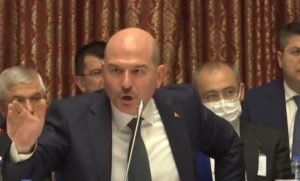
Although the Utah tax fraud and money laundering case implicated Korkmaz in 2018, no major Turkish outlets covered the US trial or wrote about the serious accusations leveled against Korkmaz. The government even helped Korkmaz suppress the very few reports published by limited online news outlets. He easily secured judges’ orders to block access to 48 links to news stories in 2018 alone.
While Korkmaz keeps expanding with more con schemes, claiming more victims in his quest to grow his empire and enrich his business and political associates, his last stint landed him in hot water. He tried to take over a company owned by İnan Kıraç, a neo-nationalist businessman and member of the Koç family, which owns Turkey’s largest business conglomerate. Kıraç, who had forged close ties with Erdoğan, asked the president to intervene and help him get his shares from Korkmaz and drop a trade dispute of $45 million.
In the meantime, the Erdoğan government was also facing increased pressure exerted by the US, which pressed the case against Korkmaz and others. In the end Erdoğan decided to dump Korkmaz, neutralize him without risking an exposé of his close ties to Korkmaz. The goal was not really to help US authorities prosecute Korkmaz but rather to pursue a plan to undermine the US efforts, save face for President Erdoğan and put some distance between Korkmaz and senior government officials.
Turkish court ruling that lifted the travel ban against Sezgin Baran Korkmaz:
As Soylu inadvertently admitted, the plan was put into motion with the involvement of top prosecutors, judges and the police working in coordination to create the perception that the government was really going after Korkmaz. Erdoğan’s attorneys rushed to get court orders to remove photos published by online media outlets that showed him next Korkmaz and the Kingston brothers.
On September 30, 2020, under orders from the government, the 10th Criminal Court of Peace in Istanbul ruled to freeze the assets of Korkmaz, the Kingston brothers and other suspects. The court also issued a travel ban for him and the others on charges of money laundering, establishing a criminal network and fraud that were filed by the prosecutors. More rulings on the asset freeze were issued by other courts in Istanbul on October 13, 16 and 23, 2020.
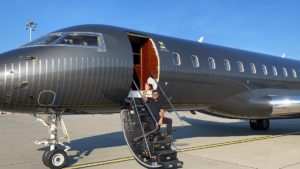
In addition to Korkmaz, 13 other suspects — Jacob Kingston, Isaiah Kingston, Rachel Kingston, Sally Kingston, Lev Dermen, Doğa Dodan, Kamil Feridun Özkahraman, Alptekin Yılmaz, Mehmet Demir, Yakup Levent Korkut, Zeynel Eren and İzzet Bozkurt also faced asset freezes.
The rulings covered the companies that Korkmaz was involved with: Mega Varlık Yönetim A.Ş., Komak Isı Yalıtım Sistemleri, SBK Holding Biofarma İlaç Sanayi, Münir Şahin İlaç Sanayi, Ecem İlaç Pazarlama, İstanbul Doğu Batı Derneği, Bugaraj Elektronik Ticaret, Heksağon Mühendislik, Auto Alsat Bilişim Otomotiv, Vaniköy Sigorta, Komak Madeni Yağ Akaryakıt, Boğaziçi Cam Sanayi, Bukombin Bilişim, Ünosan Kimya, Noil Yatırım, Blane Teknoloji, Umut İlaç and İsaanne SARL.
However, Korkmaz was privately told by the government to not worry about the investigation and court rulings. Ten days later, his lawyer, Sinan Görkem Gökce, filed a challenge with the 10th Criminal Court of Peace, asking the judge to drop the travel ban.
Letter from the Istanbul Chief Public Prosecutor’s Office asking banks to unfreeze the assets of Korkmaz and his associates:
Interestingly enough, the Istanbul Chief Public Prosecutor’s office, led by İrfan Fidan, and his deputy Hasan Yılmaz, petitioned the court to unfreeze Korkmaz’s assets and lift the travel ban. Prosecutors who requested the asset freeze and flight ban at the outset had a sudden change of heart and reversed their position. They filed a brief with the court on November 17, 2020 saying that the travel ban should be lifted. The same day, the judge issued his ruling to lift the ban.
The same prosecutors also filed a motion with the 3rd Criminal Court of Peace on November 6, 2020, successfully asking the judge to unfreeze Korkmaz’s assets and reverse earlier court rulings on asset freezes. They cited a new report by the Financial Crimes Investigation Board (MASAK), which is under the jurisdiction of the Treasury and Finance Ministry. The MASAK report, dated November 5, 2020, claimed that it could not find any evidence implicating Korkmaz and his associates in money laundering or fraud. The court ruled on November 6 to lift the freeze on Korkmaz’s personal and corporate assets.
It was also quite bizarre that the prosecutors lifted the asset ban even before the judge’s order, informing the banks to release the assets of Korkmaz and his associates before the court rendered its decision. In other words, the prosecutor’s office acted like a court and did not wait for the judge’s ruling. It was clear that the operation was on the clock and that the prosecutors did not want to waste any time.
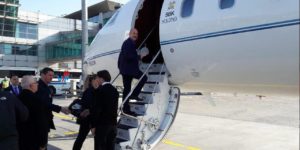
The court papers, obtained by Nordic Monitor, also revealed that Korkmaz was never questioned by the police or the prosecutors during the investigation, another indication that the entire criminal probe was political show. Although Korkmaz faces a long prison sentence if he is convicted of the serious charges leveled by the prosecutors, he was not detained, arrested or even questioned by the authorities.
On December 4, 2020 Soylu had a secret meeting with Korkmaz in his office in Ankara during which he told Korkmaz to shed his shares in companies, move his money and get out of Turkey to create distance between his dealings and the Turkish government. The two had known each other for a long time, and Soylu had even traveled on Korkmaz’s private jet.
Korkmaz had already made moves to stash his wealth, pay his dues to government officials and exit partnerships in several businesses. He was warned by the interior minister that he would face another police operation and a renewed investigation by prosecutors.
Motion filed by the Istanbul Chief Public Prosecutor’s Office that asked the court to unfreeze the assets of Korkmaz and his associates:
Korkmaz left Turkey a day after meeting with Soylu. On December 29, 2020 detention warrants were issued for Korkmaz and 19 associates as part of the investigation by the Istanbul prosecutor’s office, which had helped Korkmaz liquidate his assets and allowed him to travel abroad. All of a sudden, a new MASAK report surfaced, this time with a finding that Korkmaz and his co-conspirators had laundered money in the amount of $132 million. Only a month earlier, the same MASAK had claimed it found no evidence of any fraud or money laundering activity on the part of Korkmaz or his companies.
As expected, the police could not locate Korkmaz and eight other suspects in the case. Out of 11 suspects who were detained, only Kamil Feridun Özkaraman was formally arrested, while the others including Korkmaz’s wife Gökçen Korkmaz were let go.
What is more, the prosecutors dropped two serious charges against Korkmaz, leaving only money laundering in the new investigation. In other words, even if Korkmaz was convicted, he would get a maximum of five years, which means he most likely won’t do any time in prison.
Multiple reports issued by Turkey’s Financial Crimes Investigation Board (MASAK) on the dealings of Sezgin Baran Korkmaz contradicted each other to serve a political purpose.
A third MASAK report, which was issued on January 20, 2021, appears to have been designed to dissociate or minimize the connection between Korkmaz and US companies in a government bid to distance itself further from the Utah federal case.
The then-Istanbul Chief Public Prosecutor Fidan, who supervised the operation, was rewarded by the Erdoğan government and appointed as a member of the Constitutional Court. Yılmaz, who played a hands-on role in the communication between the courts and the prosecutor’s office, was appointed by the government to the position of deputy justice minister.
In the meantime, Korkmaz was freely traveling abroad, even getting help when he needed from Turkish embassies around the world, when in fact he was facing an arrest warrant in Turkey. At one time, he was briefly detained in Kinshasa in January 2021, only to be released after the the Turkish ambassador intervened on his behalf. He returned to Europe.
However, the Erdoğan government’s sinister plan to keep Korkmaz safe abroad hit a snag when Korkmaz was detained in Austria on a US warrant. Fearing that Korkmaz would turn into a government witness in the US federal court case and spill the beans on Erdoğan, the Turkish government scrambled to get him back to Turkey. His extradition case is still pending.
